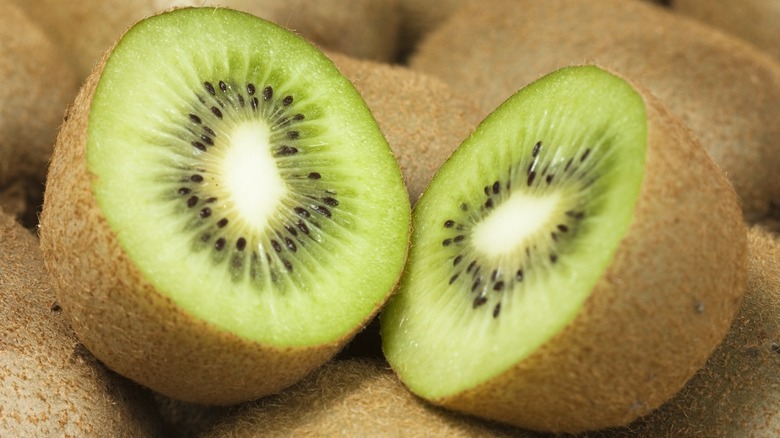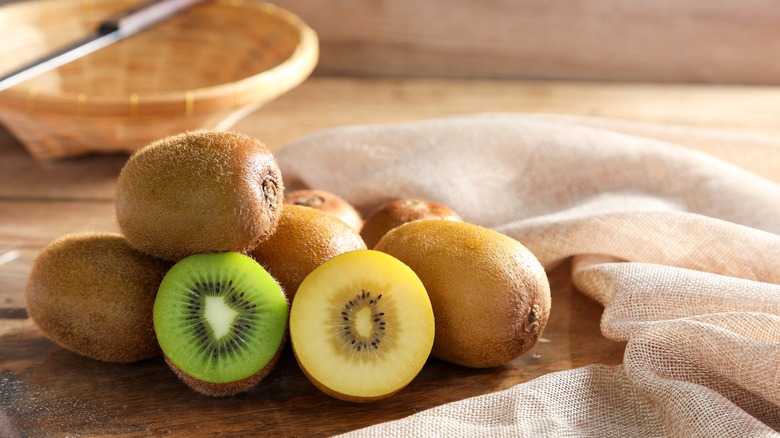The Listeria-Contamination Recall Coming For Your Beloved Kiwi
You might want to think twice before adding kiwis to your next fruit salad. While it's true that the fruit is packed with vitamins and nutritious benefits, it could also be contaminated with the bacteria Listeria monocytogenes, per a recent recall notice. According to the U.S. Food & Drug Administration (FDA), organic kiwis from the Zespri brand in New Zealand may have been affected.
The parent company behind the fruit brand, David Oppenheimer and Company I LLC, chose to voluntarily recall the product due to the potential contamination. The produce in question is sold in a plastic clamshell, so other kiwis by the brand are not a source of concern. The fruit listed in the recall was shipped between June 14 and July 7. While the fruit is being recalled, customers who purchased the item should discard it or return it to the store for a refund.
Not all consumers need to worry about the recall, as the kiwis were only sold in the following states: Florida, Georgia, Illinois, Indiana, Kentucky, Michigan, North Carolina, New York, Ohio, Pennsylvania, Tennessee, Texas, Virginia, and Wisconsin. While recalls aren't uncommon, especially those involving produce, here's why you should avoid eating kiwis that may have been affected.
Limiting the contamination
In certain situations, food poisoning from Listeria can be life-threatening. In particular, people who are pregnant women or who have a compromised immune system are at a higher risk. According to the Centers for Disease Control and Prevention, side effects can include fever, muscle aches, confusion, and convulsions.
The Kentucky Department for Public Health first realized the contamination had occurred after a routine sampling. From there, the company was able to isolate the issue and identified two specific lots in New Zealand. So that begs the question as to how fruit develops Listeria in the first place. The bacteria grows in waste and can make it to the fruit by way of the fertilizer, ultimately making consumers sick if not properly cleaned.
As a result, it's important to stay vigilant and to stop any contaminations when it occurs. As a shopper, you should always wash your fruit before eating it to limit your risk as much as possible. Listeria can even penetrate the fruit and cause food poisoning, which is why potential contamination is taken so seriously. For that matter, when in doubt, you should consider throwing out your produce.

